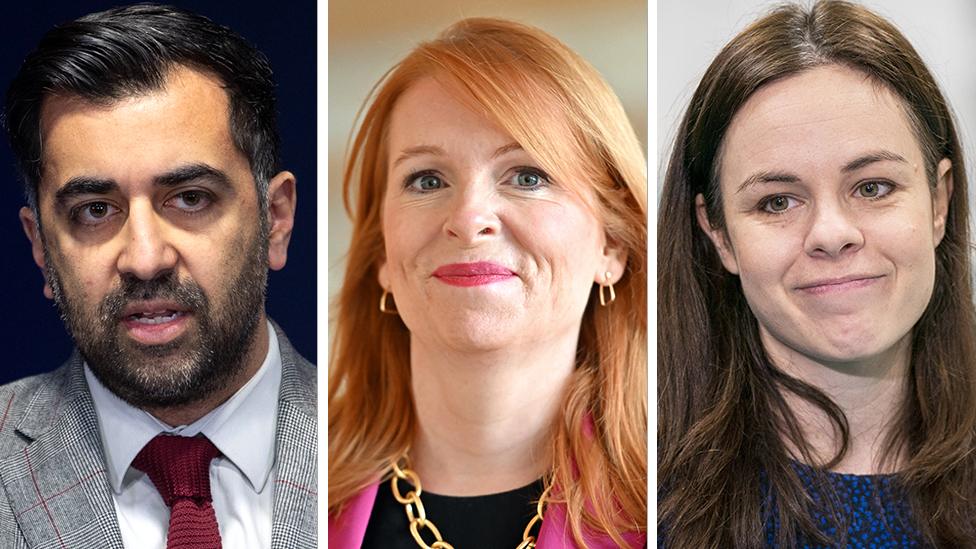Nicola Sturgeon: Search begins to find successor
- Published
WATCH: Sturgeon 'wrestling' with decision to resign for weeks
The search for a new First Minister of Scotland has begun after Nicola Sturgeon's surprise decision to stand down.
The SNP leader made the announcement on Wednesday after more than eight years in the job.
She plans to remain in office until her successor is elected.
The SNP's national executive committee will meet on Thursday evening to draw up a timetable for a leadership race.
With no obvious successor, the party's first leadership contest in nearly 20 years could see a debate on future direction and strategy.
Possible replacements include:
John Swinney, deputy first minister, who became SNP leader in 2000 following the resignation of Alex Salmond before leaving the post four years later
Kate Forbes, finance secretary who underwent a meteoric rise in recent years. Currently on maternity leave
Angus Robertson, who previously headed the SNP's Westminster group and was a vocal critic of Theresa May's government following the 2015 election
Humza Yousaf, health secretary who has held several senior posts in government. Part of a new generation of SNP figures
Keith Brown, justice secretary seen as an outsider bet.
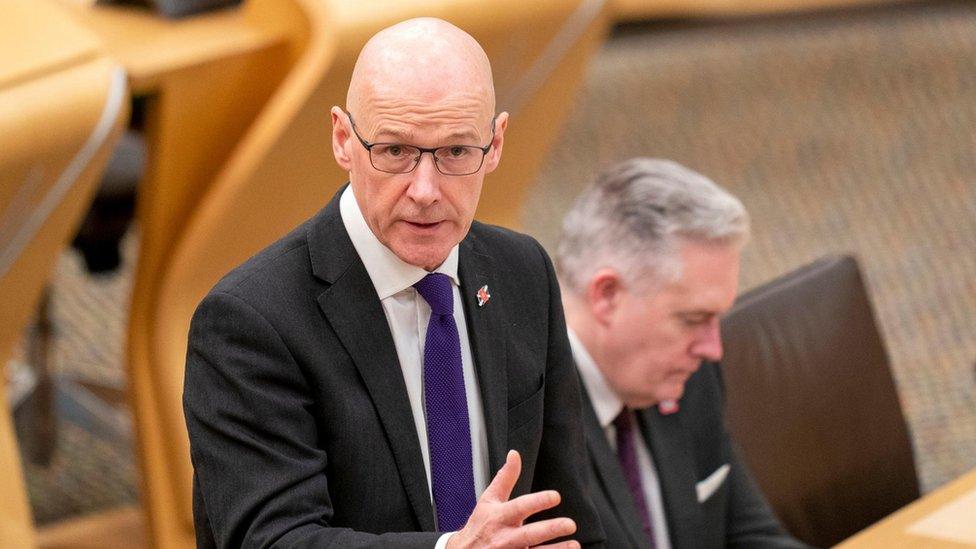
Deputy First Minister John Swinney is among the figures being tipped as a potential replacement
Ms Sturgeon made her announcement at a hastily convened news conference at her official Edinburgh residence, Bute House, but insisted it was a decision she had been weighing up for some time.
She said that in order to serve well, a politician needed to accept when it was time to make way for someone else.
"In my head and in my heart I know that time is now. That it's right for me, for my party and my country," she said.
Ms Sturgeon said her departure was not in response to the "latest period of pressure", which has included controversies over gender recognition reforms, trans prisoners and the strategy on independence.
She emphasised the huge pressures and sacrifices that came with serving in high office, adding: "I am a human being as well as a politician."
She intends to remain an MSP until at least the next Holyrood election.
The party's ruling body will now also have to decide on whether to go ahead with a special conference due to take place in March to discuss Ms Sturgeon's strategy of using the next general election as a de facto independence referendum.
The SNP's Westminster leader Stephen Flynn, who ruled himself out of the leadership contest, has called for the conference to be paused until a new leader is elected.
In her resignation speech, Ms Sturgeon said her party had an "array of talent" who could replace her as first minister.
The SNP's constitution says a candidate for party leader needs to have the backing of 100 members from at least 20 different SNP branches, with nominations already open.
If there is more than one candidate, a vote of party members will choose the new leader.
Michael Russell, the party's president, said he expected the process to be "shortened" and that it would be a "contested election".
He told Radio 4's PM: "I think that will be good for the SNP, to have different points of view contesting in a respectful way.
"I think we will decide that pretty soon and have a clear timetable that will take us forward."
Scottish Labour leader Anas Sarwar said there was now a belief in Scotland that a UK Labour government was possible for the first time since the party lost power in 2010, although he acknowledged that "significant gains" would be needed at the next election.
"For 12 years I don't think people in Scotland have believed that a Labour UK government was possible - I think that is changing now," he told the BBC.
The Scottish Conservatives disagreed, with party leader Douglas Ross telling the BBC that his party were the "clear challengers to the SNP in multiple seats across Scotland".
Mr Ross also accused Ms Sturgeon of having presided over "a decade of division and decay in Scotland".
More than 100 unionists gathered in central Glasgow on Wednesday evening to celebrate Ms Sturgeon's resignation.
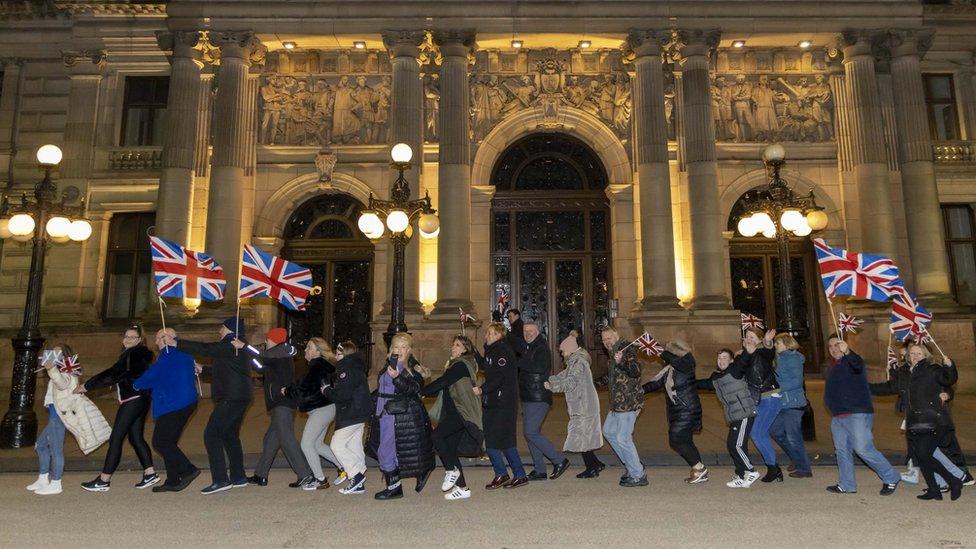
Unionists appeared to dance a conga as they gathered in central Glasgow to celebrate Ms Sturgeon's resignation
Ms Sturgeon rose to power unopposed after the independence referendum in 2014, taking over from Alex Salmond who decided to resign following the vote to remain part of the UK.
She is the longest-serving first minister and the first woman to hold the position. She has worked as an MSP since the Scottish parliament was opened in 1999.
Originally from Irvine in North Ayrshire, she has campaigned for the SNP since she was a teenager.
In her resignation announcement she said she intended to remain active in politics, championing causes including Scottish independence and improving the life chances of children who have grown up in care.
Previously she has suggested she might consider becoming a foster parent. There has also been speculation that she might continue to play a role on the world stage with an organisation such as the United Nations.


In an era of what has often felt like near permanent political revolution, the churning in and then churning out of leader-after-leader, there has been what has felt, in contrast, like a near permanent leader of the Scottish government. But no more.
The SNP must now find, and quickly, a replacement. It is far from obvious who that will be.
What does feel clearer is that Ms Sturgeon's political opponents are relieved she is going - and that is a compliment to her. Many who want to see the union preserved have longed for this day for some time, convinced her replacement will not be anywhere near as effective. Let us see.
For now, a huge figure in Scottish politics and a big figure on the UK political stage prepares to depart, and Scotland prepares for new political leadership.

People in Govanhill react to the news of Nicola Sturgeon's resignation
- Published15 February 2023
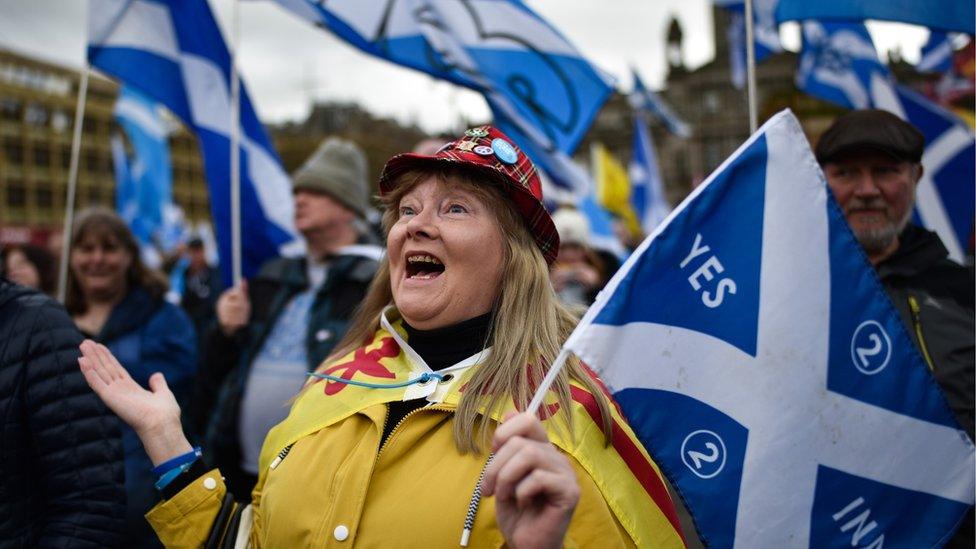
- Published15 February 2023
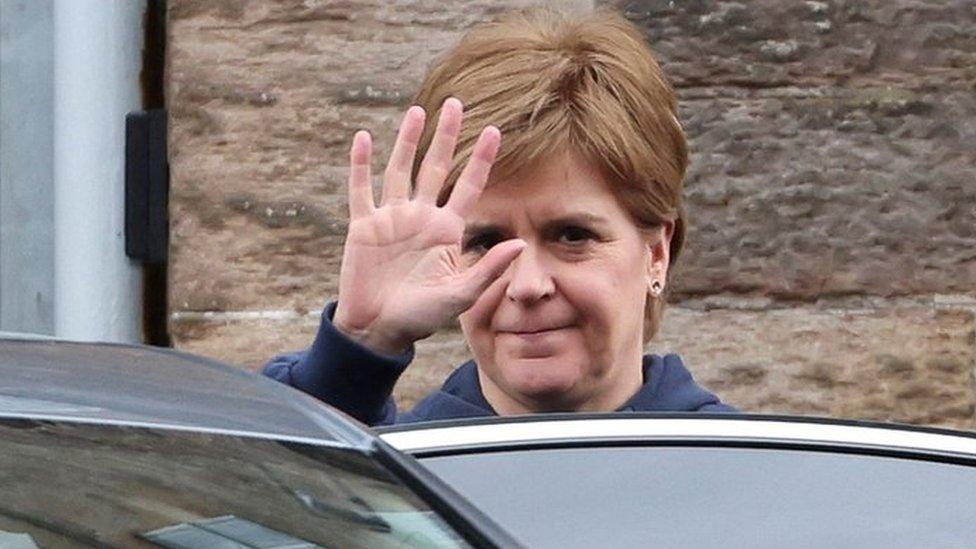
- Published15 February 2023
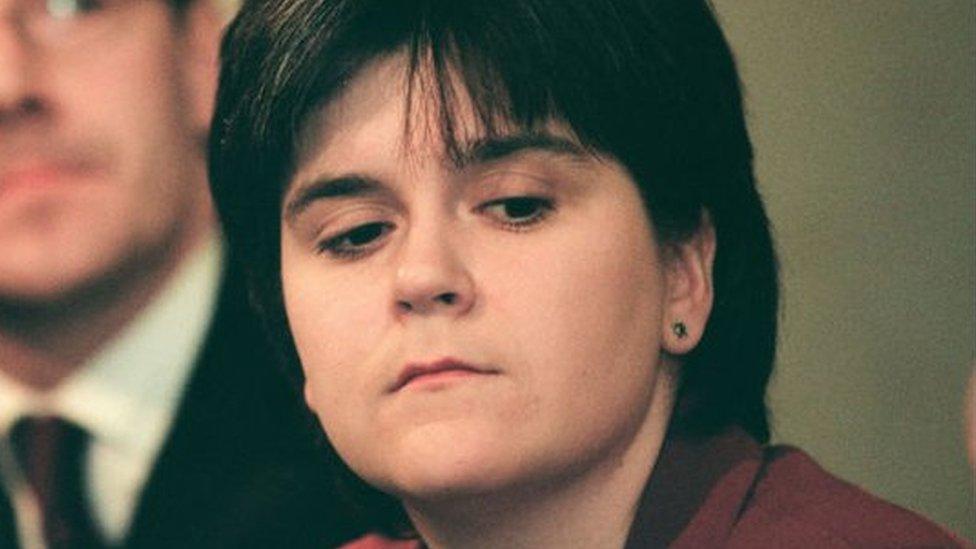
- Published24 February 2023
